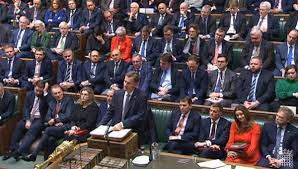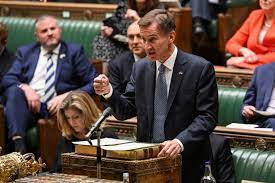The UK is a unitary state, with one source of power, the Parliament. It consists of the House of Lords and the House of Commons. The monarch does not make a political decision, but she is bound by the rules of the Parliament. Entertainment Industry Donated.
The film and television industry produces hundreds of movies and TV shows a year. These productions require a lot of money to produce. The costs include flights for actors, food for crew teams, fuel for trailer generators, and electricity for picture-perfect lighting.

Expenditure as a percentage of GDP
The OECD’s general government expenditure as a percentage of GDP indicator is an important tool for comparing the size and scope of governments across countries. It shows how much money the government spends on public goods and services. It also provides insight into the economy as a whole. This is a useful measure for assessing the impact of economic policies and comparing the success of individual industries.
The most significant component of total general government expenditure is social benefits (in cash) and social transfers in kind. In 2021, these accounted for almost half of total government spending. They were mainly allocated to the functions ’social protection’ and ’education’.
Other significant allocations were ‘defence’, ‘housing and community affairs’ and ‘economic affairs’. Expenditure in the latter category includes subsidies to support businesses through pandemic related closures and furlough schemes. However, these measures have a limited effect on overall GDP. In contrast, investments in education have a greater effect on growth.
Expenditure as a percentage of total revenue
The media and entertainment industry is a vast sector that includes a variety of different segments. These include TV, radio, gaming, social media, movies, events and art. However, the most popular segment is video streaming. This segment grew by more than 35% in 2022. The growth in video streaming has largely been driven by subscriptions. The industry is predicting further growth in the future.
The UK has three large film studios, Pinewood, Shepperton and Leavesden. They all have world class facilities and are able to accommodate several large budget films at once. But the British film industry is still dependent on inward investment.
To address this issue, the Government introduced the Eady Levy, a levy on ticket prices that is retained by exhibitors and distributed to producers of British feature films. This helped the industry to return to pre-pandemic levels. Nevertheless, the industry remains susceptible to fluctuations in consumer spending. Inflation is hurting discretionary purchases, and consumers are assessing their budgets.
Expenditure as a percentage of total expenditure
The media and entertainment industry is a massive business, employing millions of people across the world. Its revenue streams include movie production, television programming and commercials, streaming content, music, social media, video games, and more. It also includes ancillary products and services.
The COVID-19 pandemic has changed content consumption habits, shifting from theatrical to digital. As a result, many companies are refocusing their efforts on efficiency initiatives. This will lead to a slowdown in growth for the next few years, but will benefit large digital players like Netflix and Amazon.
The government’s budget for the year 2021 was nearly EUR 918 billion, with a strong relative increase in expenditure on ‘economic affairs’ (11.6% of total expenditure). This was partly due to a high level of capital transfers to support businesses affected by the COVID-19 crisis. The government has also introduced a scheme to support film and television productions in the UK, which has been a success so far.
Expenditure as a percentage of total income
The entertainment industry is one of the largest in the world and supports 2.4 million jobs. Its impact on the economy is substantial, with over $186 billion spent yearly on wages, from special effects technicians to ticket takers. The industry’s growth is due to the increasing popularity of streaming services and subscriptions.
The US entertainment market defied expectations of a drop in 2021 with total home/mobile and theatrical revenues up +7% year-over-year. Digital drove most of the growth with 72% share, up from 67% in 2020. Theatrical accounted for 21% share and physical for 7%.
The British central government published some data on pandemic-related contracts awarded from January through November, but many more remain secret. Despite this, many companies did well in the first seven months of the pandemic needs read more hear.





















